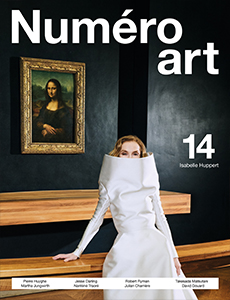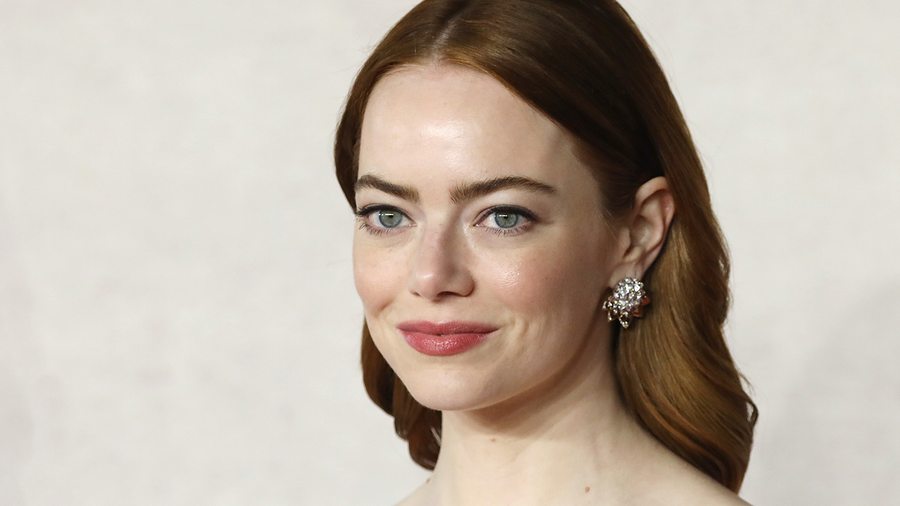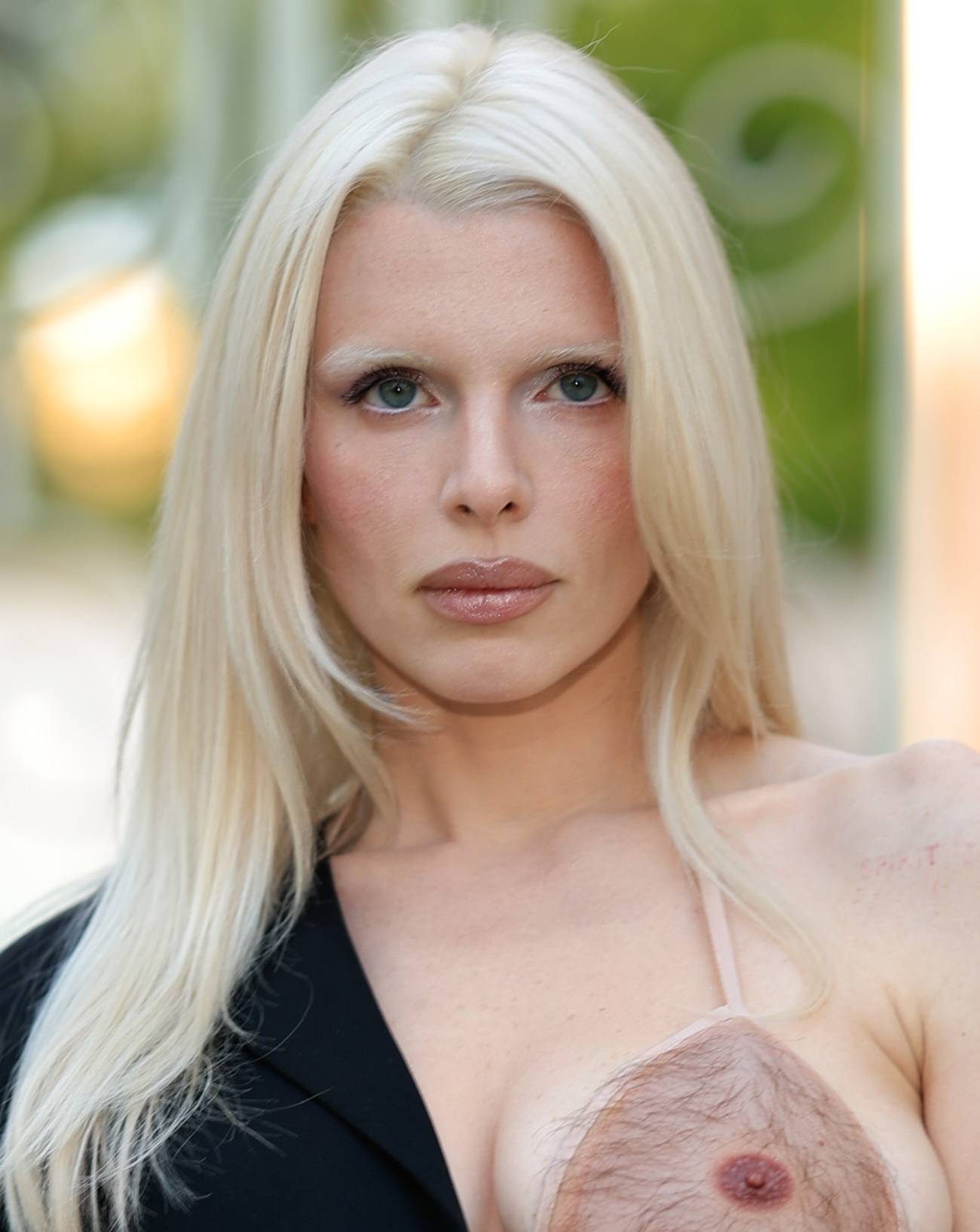“Playing the role of Bella was unbelievable. I see this film as a romcom, in the sense that Bella falls in love with life itself rather than a person. She accepts the good and the bad in equal measure. That really made me look at life differently. All of it counts and all of it is important. Bella has stayed with me deeply.” Emma Stone’s tender and moving words were uttered by the actress as she received the Golden Globe for Best Actress in a Comedy or Musical on January 7th, 2024.
With her beautiful speech, the 35-year-old American actress wanted to emphasize how much the role of the candid, audacious and carnal Bella Baxter has changed her life. Emma Stone plays the role of a grown woman with the mind of a child in Poor Things, the ambitious new film by Greek director Yórgos Lánthimos (The Favorite, The Lobster), which was released last Wednesday, January 17th. But this surreal steampunk comedy, which won the Golden Lion at the last Venice Film Festival, will also change the way viewers see Emma Stone, as well as women and the world at large.
Interview with Emma Stone, the actress starring in the wacky tale Poor Things
Before starring in Poor Things, and even producing this strange and sublime adaptation of Alasdair Gray’s novel, Emma Stone could already count on her great acting career and the respect of her peers in Hollywood. With her everlasting youthfulness and innocence, the mischievous star had already won the Oscar for Best Actress thanks to her performance in Damien Chazelle’s infamous La La Land (2016).
Versatile, glamorous, sparkling, extravagant, and always spot-on, the actress excels equally well in comedies (Easy Girl), romantic features (Crazy Stupid Love, Woody Allen’s Magic in the Moonlight, Friends with Benefits), film noir and drama (Irrational Man, The Help) or period pieces (The Favorite). Yet the star of The Amazing Spider-Man, Birdman and Cruella has never been more moving, disconcerting or impressive than in Poor Things.
Her performance in Poor Things is a wacky, burlesque tour de force that could earn the insolently beautiful actress another Oscar - in addition to her husky voice, her very large turquoise eyes are wide open on her doll-like face... As a child, Emma Stone dreamed of being Steve Martin. With this new role, she does much better, becoming the worthy heir to the greatest heroines of screwball comedy, the thrilling and whimsical film genre of the 1930s and 1940s... Long gone are the days when the young Emma Stone, who now stars in the hilarious series The Curse, would give her parents a PowerPoint presentation to convince them to let her take a chance in Hollywood...
“I’d say that Bella Baxter is the happiest character I’ve ever played so far.”
Emma Stone
During the press conference held last December at the Bristol in Paris, one of the journalists asked Emma Stone if her performance in Poor Things had been the most risky of her career, to what she replied no with a lively cheerfulness: “I’d rather say that Bella Baxter is the happiest character I’ve ever played so far. Perhaps the things that I found hard to create with Bella were actually just my self-criticism or my way of trying to get rid of my own life experiences because she’s so open. I think I fell so madly in love with her as a person that I just wanted to live her life or at least try to live up to her standards for a while,” the actress added with her legendary infectious enthusiasm.
What does the actress, who has struggled with anxiety and panic attacks - for which she had been hospitalized a couple of times as a teenager - envy the most, and what inspires her most about the heroine of Poor Things? “Her extreme lust for life. She thinks that all aspects of life are fascinating because she is in love with being alive. I find that very inspiring. I wish I could live like that more often. Whether she is going through an incredible experience or a really difficult one, she gives an equal weight to them and finds an interest in them because that’s life. They all make you evolve internally, yet there is no judgment about them.” Bella Baxter’s poetic and raw odyssey is an inspiration for both the audience witnessing her journey and for the star of La La Land (2016).
Bella Baxter: a free-spirited heroine with a heightened sexuality
On paper, Bella Baxter’s role seemed particularly subversive, dangerous, and difficult to play. In the manner of a feminine Frankenstein, the dark, fantastic and eccentric Poor Things stages a rather outlandish plot. After committing suicide, the young Bella was brought back to life by Dr. Godwin Baxter (Willem Dafoe), who then raised her as his own daughter and kept her locked up in his home, far from a depraved society at a time that remains unknown for the viewer, but which hints at the Victorian era. As a result of an experiment by the mad, unscrupulous doctor who stands as her father, she now possesses the brain of the baby she was carrying when she died and the body of a young woman.
Devoid of knowledge and inhibition, shameless, difficult and very curious, Bella needs to relearn everything about the world and its customs. So, she decides to break free from her father’s guardianship to explore new horizons with her decadent lover Duncan, a lawyer played by Mark Ruffalo. On her journey around the globe, Bella will discover the dark side of the world and of humans and will experience a myriad of thrilling and frightening adventures. From eating pastries in Lisbon to sailing on a cruise ship, talking to strangers, reading books, or prostituting herself in a brothel in Paris, she eventually finds her calling - becoming a doctor.
“We did a lot of rehearsals for that sequence, as the dance turns into a stream of movements where I end up kicking a man in the balls.” Emma Stone
The role of the intrepid Bella Baxter could have frightened many actresses because of the nude and sexual scenes. Yet, Emma Stone slipped into the skin of this astonishing startled creature with invigorating energy. A challenge that required a bit of training, just like stage actors would rehearse before a play... “We had a schedule of rehearsals similar to the one tested before shooting the film The Favorite. It only took three weeks to play together with the other actors, which actually represents a lot of playing,” the actress explained.
We did a lot of rehearsals for one scene in particular, where Bella Baxter is dancing wildly in front of her lover, Duncan, and a whole bunch of people stunned by her rebellious, erratic, exhilarated movements. “With choreographer Costanza Macras, we embarked on a great journey exploring how Bella could dance. How would she behave at this moment of the story? What role would Duncan’s jealousy play? Although it’s a dance scene, it says a lot about Bella and Duncan’s dynamic, about her freedom, as well as her lover’s attempts to attract and catch her, but also about Bella’s power over him in these moments and the struggle it triggers. So we did a lot of rehearsals for that sequence, as the dance turns into a stream of movements where I end up kicking a man in the balls and throwing champagne in Duncan’s face. That scene was really fun to shoot because it had been a long process. We had waited for months before dancing.”
La bande-annonce de Pauvres Créatures (2024).
“Yórgos Lánthimos doesn’t like to overthink and that’s wonderful, because neither do I.” Emma Stone
Yórgos Lánthimos has already expressed his admiration for one of his favorite actresses, Emma Stone, without whom Bella could not have existed, according to him. But the lead actress also insists on the crucial role played by the Greek filmmaker in her masterful performance. “Yórgos can be compared to a conductor who makes you understand the language and dialogue of the character in your body without it being prescriptive. You simply do fun things and ridicule yourself in front of everyone. By the time you get on the set, you really feel like you’re part of a theater company - it was already like that on the set of The Favorite, but it was really important to do that here because of the vulnerability implied by the storyline. It was as if everyone knew everyone else. We all felt comfortable and intimate with each other. I loved that part of the process.”
Emma Stone heaps praises on the director with whom she has already filmed three times and for whom she has boundless trust. “I think we just get along. We understand each other. We don’t need to talk too much about things. He doesn't like to overthink and that’s wonderful, because neither do I. He’s very practical, whether he evokes the physicality of the characters, the right rhythms to adopt or the different things he wants to experiment with. He’s open to a trial-and-error approach.”
Un extrait du film Pauvres Créatures (2024) dans lequel Emma Stone danse.
“Now I fully understand the importance of the work of the intimacy coordinator.”
Emma Stone
To pull off this obsessed, sensual and highly physical performance, Emma Stone was also able to rely on an intimacy coordinator. “I felt so stupid because, because I knew Yórgos (Lánthimos) so well. I felt so comfortable with the actors. I felt good. I was fine. And I thought that I wouldn’t need an intimacy coordinator, that we would choreograph these scenes. It’s very clinical when it comes to sexuality, so these scenes were carefully planned. But, Yórgos said that we needed one, a woman named Elle, who was incredible. When I met her, and I thought to myself, how could I have thought that we didn’t need her right away? Now, I have a deep appreciation for intimacy coordinators. I didn’t know enough about their work.”
Emma Stone reveals the secrets of this new and much-discussed profession: “First of all, she creates an extremely comfortable and very intimate atmosphere on set, but she also helps choreograph scenes and make them appear more realistic when they’re actually fictional. She makes the environment so much better because of her presence. Now I fully understand the great importance of this job.”
Poor Things, a feminist film?
With this vibrant, lively character who has as much sex as she wants with multiple partners and frees herself from the yoke of her father, of the husband to whom she was promised, and from her lover, Emma Stone draws a portrait that challenges patriarchy. All the men want to control her, but she keeps eluding them. With its series of phantasmagorical tableaux coming straight out of a book of spells, this wacky philosophical tale depicts and criticizes the norms that imprison the minds and bodies of women.
What would happen to a woman if she could start afresh with a new brain, free of the rules of patriarchy? “I think feminism is embedded in the character through her level of agency, her curiosity and questioning of the world. Bella’s story is intrinsically feminist.” Poor Things is a coming-of-age story of emancipation that will speak to many viewers, especially female ones, and will leave no one indifferent, as all great films should...
Poor Things (2024) by Yórgos Lánthimos, starring Emma Stone, Mark Ruffalo, Willem Dafoe and Margaret Qualley, out in cinemas on January 17th, 2024.









